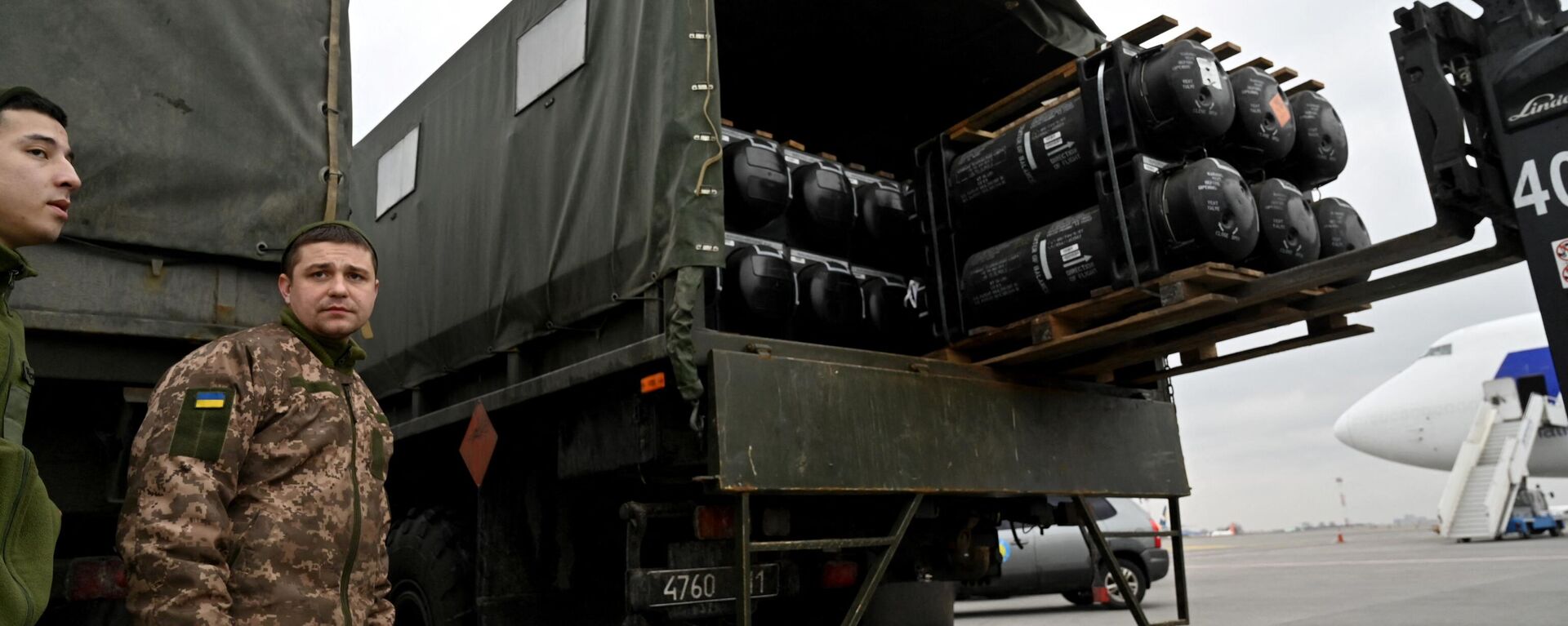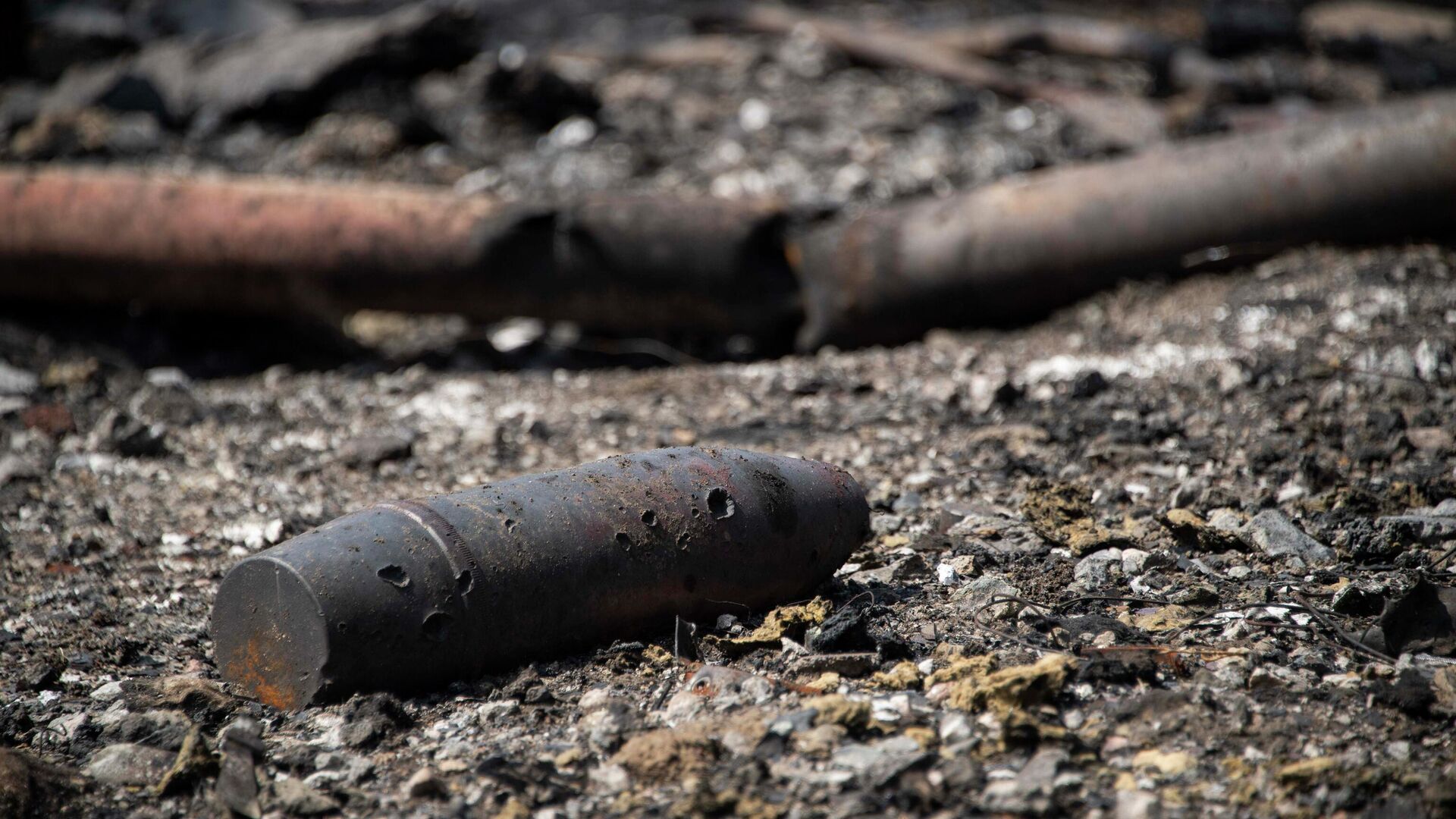https://sputnikglobe.com/20220824/ex-osce-vice-pres-uk-policies-amid-ukrainian-conflict-aimed-at-preventing-russo-german-cooperation-1099956287.html
Ex-OSCE Vice Pres: UK Policies Amid Ukrainian Conflict Aimed at Preventing Russo-German Cooperation
Ex-OSCE Vice Pres: UK Policies Amid Ukrainian Conflict Aimed at Preventing Russo-German Cooperation
Sputnik International
As countries across Europe face soaring energy prices fueled by Western sanctions imposed against Russia over the ongoing conflict in Ukraine, the British... 24.08.2022, Sputnik International
2022-08-24T18:55+0000
2022-08-24T18:55+0000
2023-05-28T15:20+0000
analysis
interviews
europe
ukraine
united kingdom (uk)
https://cdn1.img.sputnikglobe.com/img/07e6/08/18/1099956974_0:160:3073:1888_1920x0_80_0_0_cd954322ab3395c46b4813b4e8983e56.jpg
Former OSCE Vice President and Bundestag MP Willy Wimmer shared with Sputnik his thoughts on some of the aspects of the current situation as conflict in Ukraine enters its seventh month.Sputnik: Why are British diplomats pushing their European counterparts towards a further escalation of the crisis in Ukraine? What does the UK stand to gain from this? Willy Wimmer: It is obvious that London is pursuing the policy of "global Britain". They will continue with their policy, which in the last three hundred years was very effective in controlling the continent and large parts of the globe and make use of foreign potential for their own purpose.At the beginning of the actual stage in Europe was the French-German proposal in the EU, to have a summit meeting of the EU with Russia. This proposal failed because of the "usual suspects" and their supporters outside the EU. The idea is to have either "unconditional surrender" by Russia, to throw Russia out of Europe or have a bunch of states instead of Russia.Sputnik: Is the Foreign Office move another one of Liz Truss’s election stunts, just as her recent claim that she was “ready” to use nuclear weapons if needed?Willy Wimmer: When someone listens to Mrs. Truss and her words with regard to the use of the nuclear arsenal, it is fair to speak of a "present danger" for peace and security. The people in Western European countries cannot understand why there is no effort by our governments for "end of hostilities", peace and all efforts to stop the bloodshed. Instead of this will of their peoples, they are fueling war.Sputnik: The US is set to announce $3 billion of new weaponry in its largest aid package so far. Do you think the British diplomatic push has been inspired by Washington's move?Willy Wimmer: In the British movie "The darkest days" on the situation at Dunkirk, they showed Churchill in a toilet in his war-bunker on the phone with Washington. There are no signs that something has changed.Sputnik: How do you expect EU leaders to react? Will they bow to British pressure? After all, French President Macron already described soaring inflation and food prices are “the cost of freedom”.Willy Wimmer: French president Macron said many things during the last months and especially after his meeting with President Putin in Moscow at the beginning of this year. In his press statements, he was outspoken about the right of Russia to get answers on the questions on security they rightfully had and still have. His request to the West was to give answers. The situation still is that there are no answers. We all know that things have to be solved between Washington and Moscow, perhaps with support of EU-Europeans.Sputnik: Regardless of what the elite decides, how sustainable is it for European countries to increase their support to Ukraine? How will this affect their economies and their citizens' wellbeing?Willy Wimmer: Ukraine seems to be the graveyard for Europe's future as a continent of good neighbours. A spokesman for the German Defense Ministry said earlier that the Ministry reached “the acceptable limit when selling Bundeswehr stocks” after sending aid to Ukraine.Sputnik: How have the EU member states’ own defense capabilities been affected by their support to Ukraine? Should EU members focus on their own security, including stable food prices?Willy Wimmer: There is only one idea which matters: give peace a chance. I served as the German minister of defense during the last NATO exercise in Cold war times in spring 1989, before unification. The war game was conventional and nuclear. Nothing was left from Europa as a result of the war. Without peace in Europe there will be no future for all of us.
https://sputnikglobe.com/20220824/why-ukraine-risks-becoming-europes-graveyard-despite-uk--eu-putting-on-brave-face----1099953941.html
ukraine
united kingdom (uk)
Sputnik International
feedback@sputniknews.com
+74956456601
MIA „Rossiya Segodnya“
2022
Sputnik International
feedback@sputniknews.com
+74956456601
MIA „Rossiya Segodnya“
News
en_EN
Sputnik International
feedback@sputniknews.com
+74956456601
MIA „Rossiya Segodnya“
Sputnik International
feedback@sputniknews.com
+74956456601
MIA „Rossiya Segodnya“
interviews, europe, ukraine, united kingdom (uk)
interviews, europe, ukraine, united kingdom (uk)
Ex-OSCE Vice Pres: UK Policies Amid Ukrainian Conflict Aimed at Preventing Russo-German Cooperation
18:55 GMT 24.08.2022 (Updated: 15:20 GMT 28.05.2023) As countries across Europe face soaring energy prices fueled by Western sanctions imposed against Russia over the ongoing conflict in Ukraine, the British government reportedly became concerned that some European states might cut their support to Kiev.
Former OSCE Vice President and Bundestag MP Willy Wimmer shared with Sputnik his thoughts on some of the aspects of the current situation as conflict in Ukraine enters its seventh month.
Sputnik: Why are British diplomats pushing their European counterparts towards a further escalation of the crisis in Ukraine? What does the UK stand to gain from this? Willy Wimmer: It is obvious that London is pursuing the policy of "global Britain". They will continue with their policy, which in the last three hundred years was very effective in controlling the continent and large parts of the globe and make use of foreign potential for their own purpose.
They strictly follow the anglo-saxon target not to have cooperation between Russia and Germany on the continent and they do their utmost in cooperation with governments in the Baltic states and elsewhere.
At the beginning of the actual stage in Europe was the French-German proposal in the EU, to have a summit meeting of the EU with Russia. This proposal failed because of the "usual suspects" and their supporters outside the EU. The idea is to have either "unconditional surrender" by Russia, to throw Russia out of Europe or have a bunch of states instead of Russia.

24 August 2022, 17:31 GMT
Sputnik: Is the Foreign Office move another one of Liz Truss’s election stunts, just as her recent claim that she was “ready” to use nuclear weapons if needed?
Willy Wimmer: When someone listens to Mrs. Truss and her words with regard to the
use of the nuclear arsenal, it is fair to speak of a "present danger" for peace and security. The people in Western European countries cannot understand why there is no effort by our governments for "end of hostilities", peace and all efforts to stop the bloodshed. Instead of this will of their peoples, they are fueling war.
Sputnik: The US is set to announce $3 billion of new weaponry in its largest aid package so far. Do you think the British diplomatic push has been inspired by Washington's move?
Willy Wimmer: In the British movie "The darkest days" on the situation at Dunkirk, they showed Churchill in a toilet in his war-bunker on the phone with Washington. There are no signs that something has changed.
Sputnik: How do you expect EU leaders to react? Will they bow to British pressure? After all, French President Macron already described soaring inflation and food prices are “the cost of freedom”.
Willy Wimmer: French president Macron said many things during the last months and especially after his meeting with President Putin in Moscow at the beginning of this year. In his press statements, he was outspoken about the right of Russia to get answers on the questions on security they rightfully had and still have. His request to the West was to give answers. The situation still is that there are no answers. We all know that things have to be solved between Washington and Moscow, perhaps with support of EU-Europeans.
Sputnik: Regardless of what the elite decides, how sustainable is it for European countries to increase their support to Ukraine? How will this affect their economies and their citizens' wellbeing?
Willy Wimmer: Ukraine seems to be the graveyard for Europe's future as a continent of good neighbours. A spokesman for the German Defense Ministry said earlier that the Ministry reached “the acceptable limit when selling Bundeswehr stocks” after sending aid to Ukraine.
Sputnik: How have the EU member states’ own defense capabilities been affected by their support to Ukraine? Should EU members focus on their own security, including stable food prices? Willy Wimmer: There is only one idea which matters: give peace a chance. I served as the German minister of defense during the last NATO exercise in Cold war times in spring 1989, before unification. The war game was conventional and nuclear. Nothing was left from Europa as a result of the war. Without peace in Europe there will be no future for all of us.



